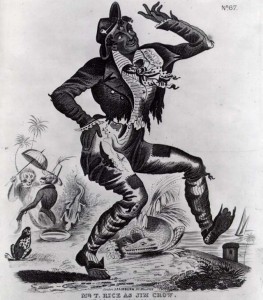Overview
The nineteenth century had always been an age of certainties, but by the 1890s, some of the post-Civil War consensus about American civilization and progress was beginning to fragment as it had never quite done before. Populists challenged the distribution of wealth and the plight of the farmers. Progressives highlighted the terrible conditions of immigrants and the urban poor. Civil rights reformers questioned the rise of “Jim Crow,” or the consolidation of discriminatory laws across the South. Anti-imperialists battled back against the conquest of territorial lands outside the continental United States. Almost everywhere across American culture, there was a sense that the triumph of the expanding nation had created unintended controversies and challenges, not fully anticipated either by the Founders or even the Saviors of the Union. It was into this climate that Booker T. Washington first became a celebrated –and then somewhat controversial– figure. During the 1880s and 1890s, he gained renown as the leader of the Tuskegee Institute, a vocational school for African Americans in central Alabama. Washington was determined to promote self-made black people, who could thrive in American society by dint of their own hard work and positive thinking. He was adamant about that formula, sometimes to the point of alienating fellow civil rights reformers. He claimed almost unbelievably in his memoir, for example, that “in all my contact with the white people of the South I have never received a single personal insult.” But then, most famously, he delivered a popular speech at the 1895 Atlanta Cotton States and International Exposition that urged blacks to “Cast down your bucket where you are,” or in other words, to resist migration and political agitation and instead to focus on improving their lives in the South through economic self-sufficiency. It was a message about how to achieve civil rights progress that made Washington beloved by many, and resented by others, but without doubt it became the central legacy of his notable career.
Online Textbook Resources
Political Crisis of 1890s from Digital History (Mintz and McNeil)
Progressive Era from Digital History (Mintz and McNeil)
America Becomes World Power from Digital History (Mintz and McNeil)
Selected Timelines
American Literature & Events: 1890s (Donna Campbell / Washington State)
Jim Crow, 1881-1900 (PBS)
Featured Videos
PBS produced a fascinating documentary based upon Douglas Blackmon’s prize-winning study, Slavery by Another Name (2008). Here is a brief video excerpt from that film and then a short interview with Blackmon. Then Tim Betts takes on a hallmark of the Progressive era with his music parody of Upton Sinclair’s “The Jungle,” a muckraking expose of the meat-packing industry in Chicago.
